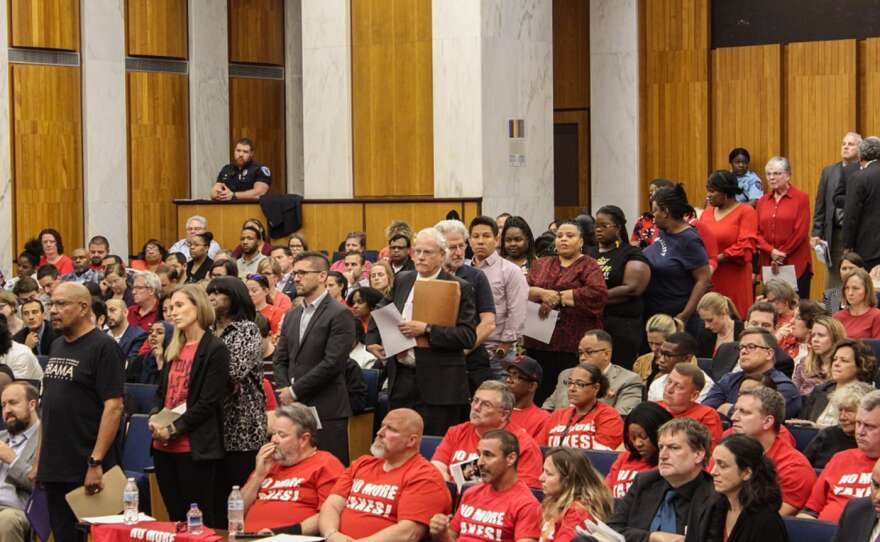Richmond City Council is poised to approve a budget that includes utility rate increases and Richmond’s first cigarette tax.
Mayor Levar Stoney proposed a budget that includes more than $21 million in new investments in schools and roads, funded by a 9-cent increase in the property tax rate and a 50-cent cigarette tax. On Monday, Richmond City Council members continued debating more than two dozen budget amendment. They failed to reach a consensus on various amendments that would have increased, decreased or eliminated the cigarette tax. That means the original 50-cent cigarette tax will almost certainly be a part of the new budget.
Council member Kristen Larson, who represents Southwest Richmond, supported the tax.
“I think this will be a good start for us,” Larson said. “I understand it’s a declining revenue, but it’s important for us to find new sources of revenue, because [localities] are somewhat limited in the things we can access for tax purposes.”
Before the vote, City Council heard from Danny Avula, Director of the Richmond City Health Department. Avula said the cigarette tax could lead to public health benefits, but the benefits would be greater if the council pushed the tax above 50 cents.
“We know from the studies that a 10 percent increase in the price of cigarette will lead to a three to five percent reduction in cigarette smoking,” Avula said. “So from a public health perspective, I wish it would have been 80 cents or even a $1.50, because the higher we can get that tax, the more people will quit. But I think this will start to chip away at the issue.”
Some City Council members expressed concerns about how the cigarette tax would impact convenient stores and other Richmond businesses that sell cigarettes. Reva Trammell, who represents parts of Southside, said she thinks smokers in her district will simply cross into Chesterfield County to buy cigarettes. Second District council member Kim Gray echoed those concerns, saying reports from the tobacco industry show Richmond could lose up to 150 jobs because of the tax.
Tramell and Gray also proposed amendments that would eliminate utility rate increases that city officials say are necessary to maintain an aging infrastructure. Stoney’s proposed 2020 budget includes 4 percent increases to water, wastewater and stormwater fees, and a 3.5 percent increase in gas rates. City Council did not reach a consensus on eliminating those fees Monday, meaning the increases will stand.
Gray said the increases in utility rates will have a negative impact on the city’s poorest residents.
“We preach this affordable housing rhetoric, but when the rubber meets the road utilities are something that makes a home more affordable or less affordable,” Gray said. “ We have lots of citizens on fixed incomes who simply cannot afford this.”
Despite some of the controversial pieces of the proposed budget being all but decided beforehand, council chambers were packed for a public comment period Monday night. Many residents were forced to sit in overflow rooms on the first and seventeenth floors of Richmond City Hall.
Around more than a dozen members of the Philip Morris USA employees union sat in the front row, wearing red shirts that read “No More Taxes”.
Reagan Scott, a member of the union, spoke against the cigarette tax.
“If Richmond increases taxes, adult consumers will go right to one of the many retail stores just outside the city, hurting local businesses,” Scott said.
In all, around 100 people spoke for and against the proposed budget, including school board member Cheryl Burke who lobbied for increased school funding.
“There are great things happening in this city,” Burke said. “Just think, if we were fully, fully funded, how great that would be.”
City Council has yet to make a decision about the proposed property tax increase. A majority of council members have signed on to an amendment that would eliminate the increase, but that will require them to find $21 million in cuts.
They will meet again on Wednesday.


